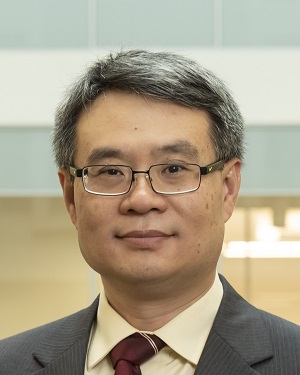
Developing Processing-In-Memory (PIM) Solutions for Artificial Intelligence Applications
The recent blooming of artificial intelligence (AI) is driven by the wide application of deep learning algorithms. In these applications, the deep learning model is normally trained first before being used to process input data. Such a scenario is particularly suitable for processing-in-memory (PIM) as operations between the input data and the trained model can be directly performed in-situ in the memory that stores the model. In this talk, we will introduce the motivation of PIM and then give some representative solutions that targeting various AI applications. We will also discuss the technical challenges of implementing these solutions at circuit, architecture, and algorithm levels, and give our perspectives on the future of PIM technology.
Bio:
Yiran Chen received B.S and M.S. from Tsinghua University and Ph.D. from Purdue University in 2005. After five years in industry, he joined University of Pittsburgh in 2010 as Assistant Professor and then promoted to Associate Professor with tenure in 2014, held Bicentennial Alumni Faculty Fellow. He now is the Professor of the Department of Electrical and Computer Engineering at Duke University and serving as the director of NSF Industry–University Cooperative Research Center (IUCRC) for Alternative Sustainable and Intelligent Computing (ASIC) and co-director of Duke University Center for Computational Evolutionary Intelligence (CEI), focusing on the research of new memory and storage systems, machine learning and neuromorphic computing, and mobile computing systems. Dr. Chen has published one book and more than 350 technical publications and has been granted 94 US patents. He serves or served the associate editor of several IEEE and ACM transactions/journals and served on the technical and organization committees of more than 50 international conferences. He received 6 best paper awards and 13 best paper nominations from international conferences. He is the recipient of NSF CAREER award and ACM SIGDA outstanding new faculty award. He is the Fellow of IEEE and Distinguished Member of ACM, a distinguished lecturer of IEEE CEDA, and the recipient of the Humboldt Research Fellowship for Experienced Researchers.



